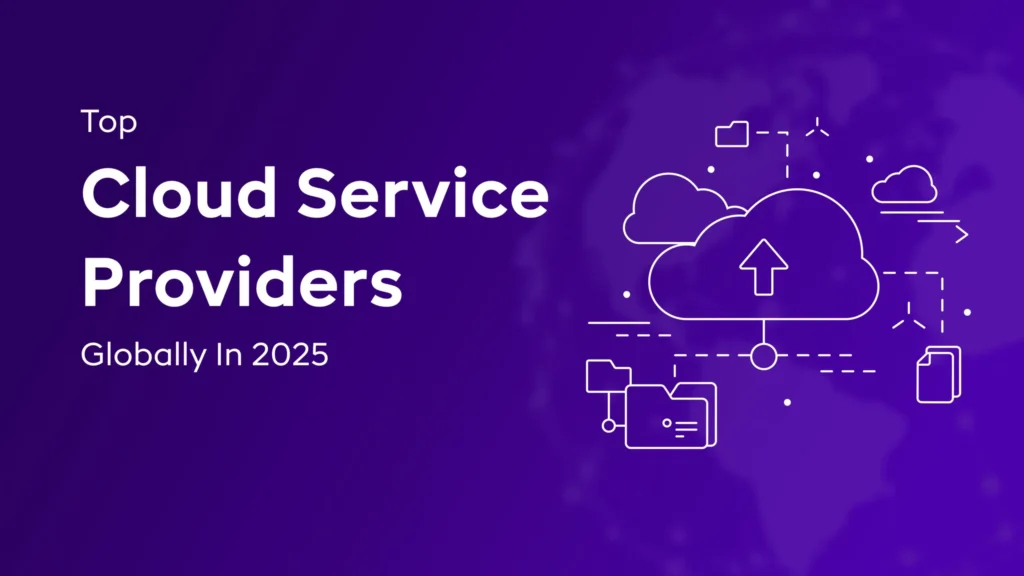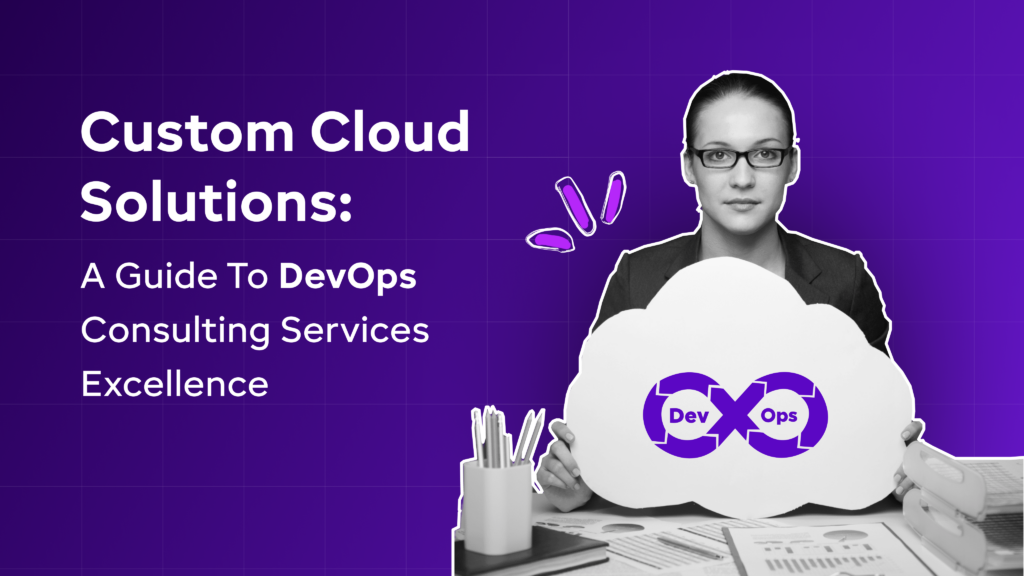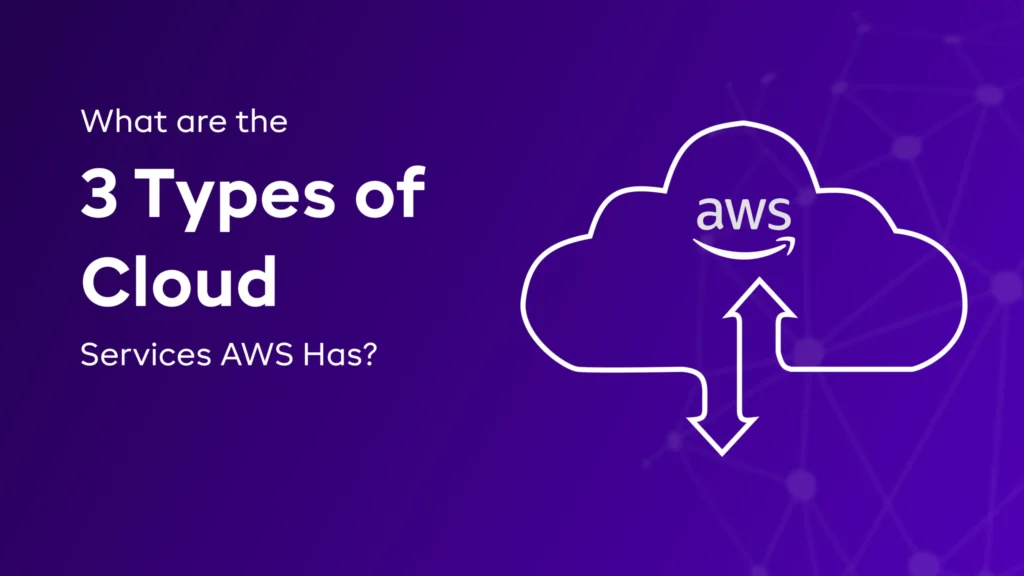Top Cloud Service Providers Globally In 2025
Published on April 22nd 2025

Introduction
Cloud computing continues to be the backbone of digital transformation in 2025, powering businesses, applications, and data-driven innovations across industries.
With AI integration enhancing automation and analytics, security measures evolving to combat cyber threats, and multi-cloud strategies gaining traction, the cloud landscape is more dynamic than ever.
This article evaluates the top global cloud providers based on market share, technological innovation, and service offerings.
Whether you're a business leader or an IT professional, understanding these industry leaders can help you navigate the ever-changing cloud ecosystem and make informed decisions for your cloud strategy.
Key Factors Defining the Best Cloud Providers
The Top Cloud Service Providers are crucial in shaping the digital landscape. Several key factors define the best among them:
1. Market Share & Revenue
- Industry leaders like AWS, Microsoft Azure, and Google Cloud dominate the market.
- Their financial strength enables continuous infrastructure expansion and innovation.
2. Innovation & Technology
- Cutting-edge advancements in AI, machine learning, quantum computing, and edge computing set top providers apart.
- Continuous R&D investments lead to improved efficiency, automation, and cloud-native solutions.
3. Security & Compliance
- Best-in-class providers ensure data protection through encryption, multi-factor authentication, and compliance with global regulations like GDPR and HIPAA.
- Regular security audits and threat monitoring help mitigate cyber risks.
4. Scalability & Performance
- The ability to scale resources on demand ensures optimal performance for businesses of all sizes.
- Low-latency networks and high-speed data processing contribute to seamless user experiences.
Want to start a project with us?
Empowering businesses to achieve greatness through strategic guidance and innovative solutions.
Book A Demo
Top Cloud Service Providers in 2025
1. Amazon Web Services (AWS)
As one of the top cloud computing service providers, AWS continues to dominate the cloud market with its vast global reach and extensive service offerings. Businesses rely on AWS Development Solutions for scalable computing power, secure storage, and cutting-edge AI capabilities.
Market Position and Global Reach
- AWS remains the dominant player in the cloud market and has the most prominent global presence.
- Operates multiple data centers worldwide, ensuring high availability and low latency.
Key Services and Strengths
- Compute: EC2, Lambda, Elastic Beanstalk.
- Storage: S3, EBS, Glacier.
- AI and Machine Learning: SageMaker, Rekognition, Lex.
- Networking: VPC, Route 53, Direct Connect.
Major Clients and Industries Served
- Used by Fortune 500 companies, startups, and government agencies.
- Industries: Healthcare, finance, e-commerce, entertainment.
Pricing and Flexibility
- Offers pay-as-you-go, reserved instances, and savings plans for cost optimization.
- Flexible pricing tiers for startups and enterprises.
2. Microsoft Azure
Microsoft Azure stands out among the top cloud-managed service providers thanks to its seamless hybrid cloud strategy and deep enterprise integrations. With AI-driven services, security compliance, and strong ties to Microsoft 365 and Dynamics 365, Azure is preferred for organizations looking for reliability and flexibility.
Growth and Hybrid Cloud Strategies
- Azure’s hybrid cloud approach, integrating on-premise with cloud, has driven rapid adoption.
- Microsoft’s enterprise relationships provide a strong customer base.
AI-Driven Services and Microsoft Integrations
- Azure AI, Cognitive Services, and machine learning capabilities.
- Azure AI, Cognitive Services, and machine learning capabilities.
Security and Compliance Advantages
- Advanced security with Azure Security Center.
- Compliance with GDPR, HIPAA, and government regulations.
Key Industries and Case Studies
- Leading in finance, healthcare, and retail sectors.
- Major clients: Walmart, Boeing, Samsung.
3. Google Cloud Platform (GCP)
GCP is a leader among top cloud service providers, especially for businesses prioritizing AI, analytics, and multi-cloud solutions. With tools like Vertex AI, TensorFlow, and BigQuery, Google Cloud excels in data-driven decision-making and machine-learning applications.
Strengths in AI, Analytics, and Open-Source Contributions
- Advanced AI/ML tools: Vertex AI, TensorFlow, BigQuery.
- Strong support for open-source and multi-cloud.
Competitive Edge in Data-Driven Solutions
- Leader in data analytics, enabling real-time business intelligence.
- Google Kubernetes Engine (GKE) for containerized applications.
Multi-Cloud and Hybrid Solutions
- Anthos enables hybrid and multi-cloud deployments.
- Strong focus on AI and sustainability.
Notable Partnerships and Expansion Efforts
- Collaborations with SAP, Deloitte, and Salesforce.
- Growing presence in financial services and healthcare.
4. IBM Cloud
IBM Cloud is a trusted name among top cloud computing service providers, known for its AI-powered enterprise solutions. With IBM Watson and Red Hat OpenShift, it excels in hybrid cloud and security, serving industries like banking and healthcare.
Strength in Enterprise Solutions and AI (Watson)
- IBM Watson AI for business intelligence and automation.
- Focus on enterprise-grade AI and machine learning.
Hybrid Cloud and Security Focus
- Red Hat OpenShift for hybrid cloud flexibility.
- Emphasis on security with confidential computing and data encryption.
Key Industries and Partnerships
- Serving industries like banking, healthcare, and logistics.
- Partnerships with financial institutions and global enterprises.
5. Oracle Cloud
Oracle Cloud is a leading choice among top cloud-managed service providers specializing in databases and enterprise applications. Its Autonomous Database and ERP solutions make it a strong contender for finance, manufacturing, and retail businesses.
Growth in Cloud-Based Databases and ERP Solutions
- Leading in cloud databases with Autonomous Database.
- Strong ERP, SCM, and HCM cloud applications.
Competitive Positioning Against AWS and Azure
- Focus on enterprise customers and database migration.
- Expanding AI and analytics capabilities.
Major Clients and Use Cases
- Used by large corporations in finance, manufacturing, and retail.
- Major clients: Zoom, FedEx, Nissan.
6. Alibaba Cloud
Alibaba Cloud dominates the Asia-Pacific market and is expanding globally as one of the top cloud services providers. It powers significant e-commerce platforms and offers AI-driven analytics, security, and cloud solutions for enterprises.
Market Dominance in Asia-Pacific
- Leading cloud provider in China and expanding globally.
- Strong government and enterprise adoption in APAC.
Strengths in E-Commerce, AI, and Big Data Solutions
- Powering Alibaba’s ecosystem, including Taobao, Tmall, and Aliexpress.
- AI-driven analytics and security services.
Global Expansion Efforts
- Expanding into Europe, the Middle East, and the U.S.
- Partnering with global enterprises for cloud adoption.
7. Other Notable Cloud Providers
Several top cloud service providers cater to specific industries. Tencent Cloud excels in gaming, fintech, and AI solutions, while Salesforce Cloud leads in CRM and business automation. SAP Cloud focuses on enterprise applications and ERP solutions, supporting large-scale businesses.
Tencent Cloud
- Growing cloud influence in China and Asia-Pacific.
- Strengths in gaming, fintech, and AI-driven solutions.
Salesforce Cloud
- Specializes in CRM and enterprise cloud solutions.
- Offers cloud-based marketing, sales, and service automation.
SAP Cloud
- Focused on business applications, ERP, and enterprise cloud computing.
- Strong adoption in large-scale enterprises.
Future Trends in Cloud Computing
Cloud computing continues to evolve rapidly, shaping how businesses operate and innovate. Here are some key trends that will define the future of cloud technology:
1. Rise of AI-Driven Cloud Solutions
AI-powered cloud services are enhancing automation, security, and efficiency.
Google Cloud Services and AWS Development Consulting leverage AI for advanced analytics, predictive maintenance, and intelligent automation.
AI-driven solutions help businesses optimize resources and improve customer experiences.
2. Increased Adoption of Multi-Cloud and Hybrid Cloud Strategies
Organizations are moving away from single-cloud dependence to multi-cloud and hybrid-cloud models.
These strategies offer flexibility, better disaster recovery, and cost optimization.
Companies benefit from combining Google Cloud Services, AWS, and other platforms for improved scalability and security.
3. Growth of Edge Computing for Faster Processing
Edge computing reduces latency by processing data closer to the source rather than relying solely on centralized cloud servers.
Industries like healthcare, finance, and IoT-driven businesses are rapidly adopting this approach for real-time decision-making.
AWS and Google Cloud are expanding edge solutions to support AI-powered applications.
4. Emphasis on Sustainability and Green Cloud Computing
Cloud providers are prioritizing energy-efficient data centers and carbon-neutral operations.
Google Cloud Services leads in sustainability with carbon-free energy initiatives.
Businesses are partnering with AWS Development Consulting to implement eco-friendly cloud strategies.

About Author


